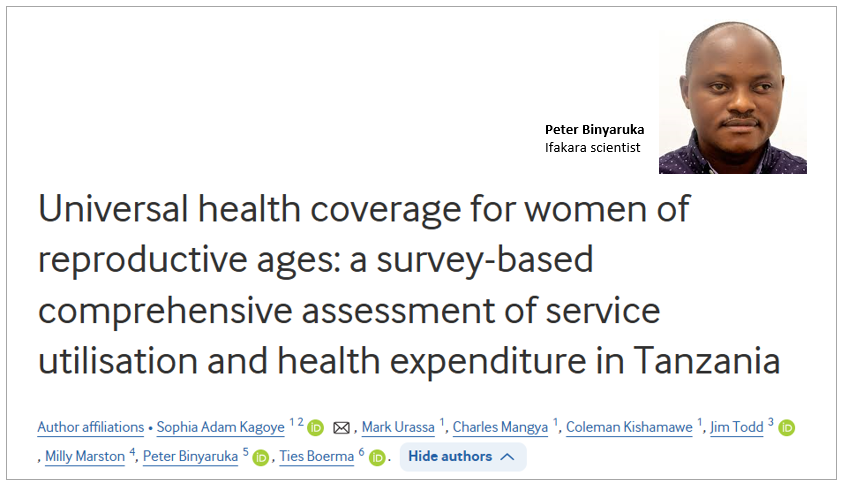
HEALTH INSURANCE: Study reveals gaps in health coverage for women of reproductive age

A new study in northwest Tanzania reveals that women of reproductive age spend more on their own healthcare needs than on maternity care—but the poorest women still face major disadvantages.
The research, which surveyed over 8,600 women aged 15–49, found that only 5% had health insurance, with poorer women reporting worse health, lower access to care, and limited spending ability.
Dr. Peter Binyaruka from the Ifakara Health Institute was among the contributors to the study, which calls for more inclusive Universal Health Coverage (UHC) strategies that go beyond childbirth to address women’s broader health needs.
The findings suggest that wealth and location heavily influence access to services. Women in poorer households often skipped treatment, self-medicated, or relied solely on local public clinics, highlighting a growing inequality.
Most health spending went toward outpatient visits for non-maternal health issues, challenging assumptions that maternity care dominates health concerns for women in high-fertility countries.
The authors urge policymakers to redesign UHC programs with a sharper focus on women’s everyday health needs—not just pregnancy and childbirth—especially for those living in poverty.
Sophia Kagoye who is affiliated to the National Institute for Medical Research Mwanza Research Centre and the Epidemiology and Biostatistics Department at the Catholic University of Health and Allied Sciences, Mwanza, was the lead author.
📖 Read the full study on BMJ Public Health
